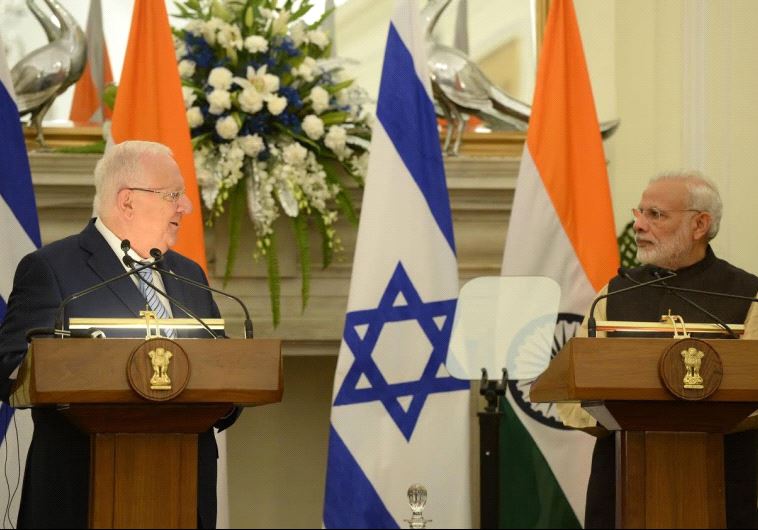Israel and India
Rivlin’s visit to India as the two countries celebrate 25 years of cooperation is a reminder of how much Israel and India have in common.
 President Reuven Rivlin meets with Indian Prime Minister Narendra Modi(photo credit: Mark Neiman/GPO)Updated:
President Reuven Rivlin meets with Indian Prime Minister Narendra Modi(photo credit: Mark Neiman/GPO)Updated: